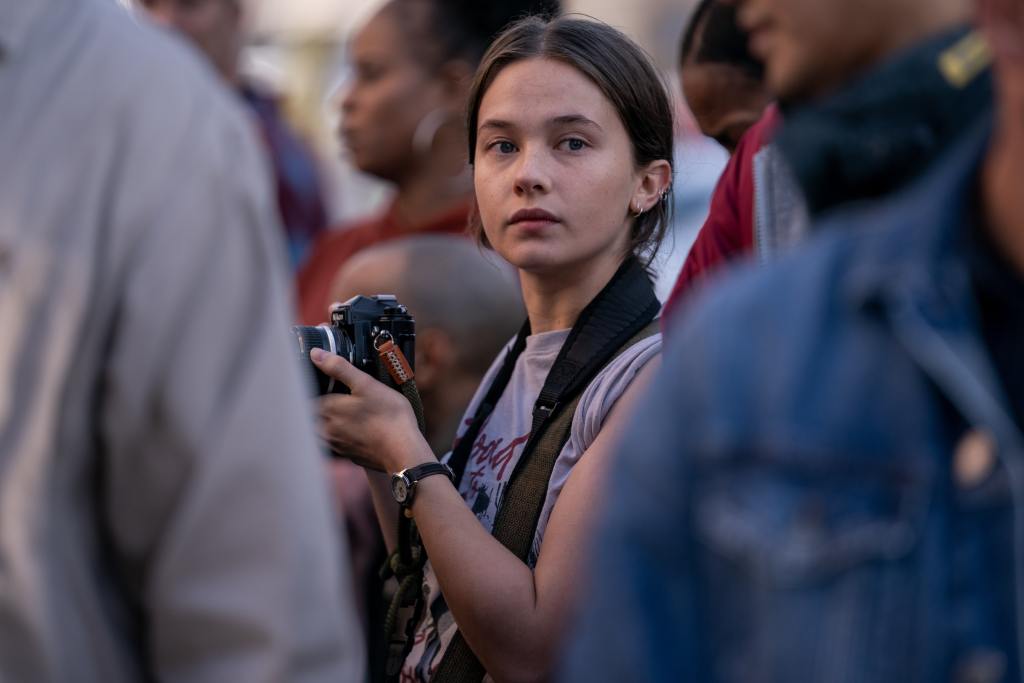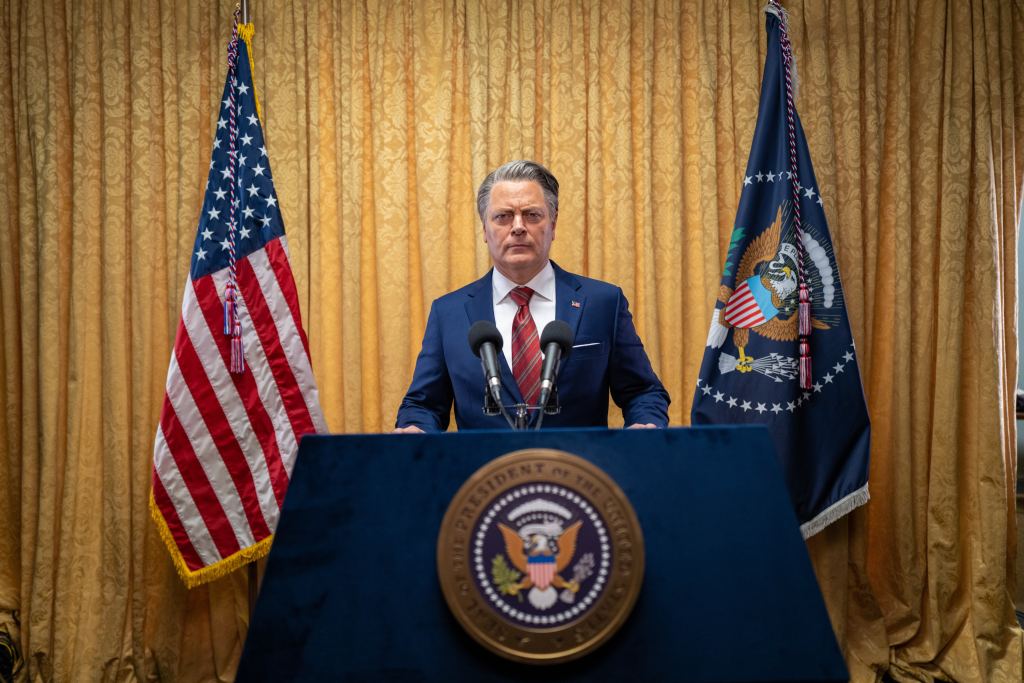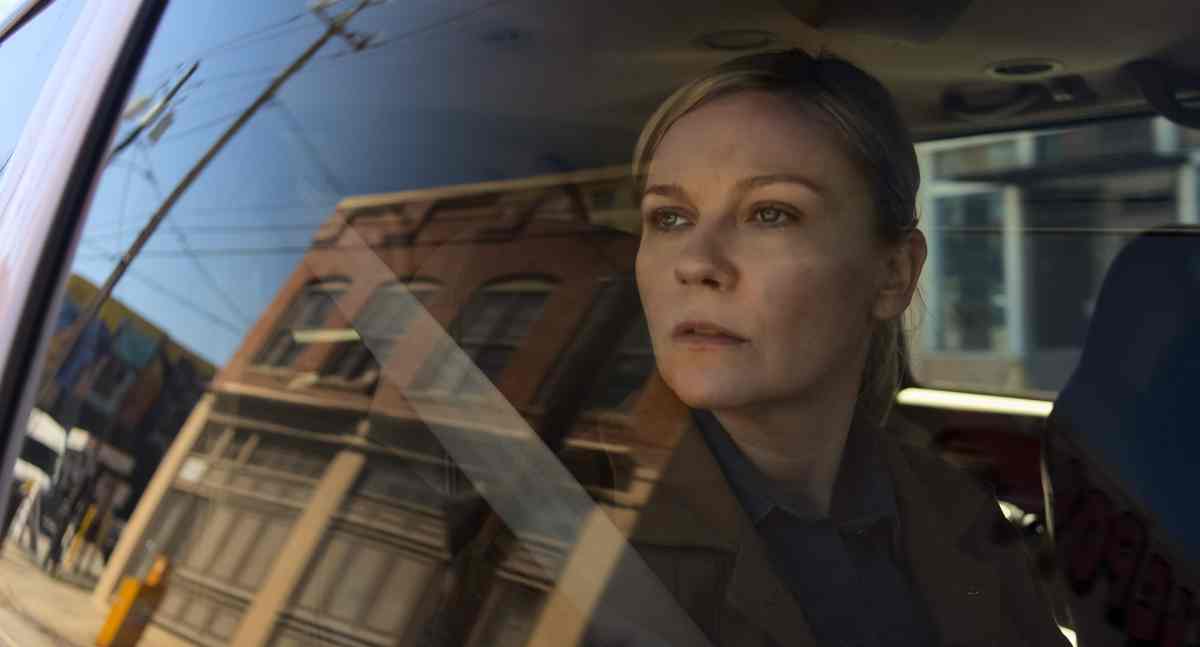Since the concept of journalism was born, we’ve been debating the role of the journalist in society – and whether ‘journalistic objectivity’ can truly be achieved.
To document the goings-on of humans, the journalist must remain removed from the emotion of it all – but neither can they simply repeat what is happening without creating some kind of narrative, otherwise they’re just stenographers.
Those ethics and guidelines that journalists abide by become increasingly threatened in times of war, where the need to document what’s happening comes before emotional responses to the brutal activities of soldiers – and uncomfortable questions like, ‘should we even be looking at this?’ loom large in the conscience.
In Alex Garland’s Civil War, four journalists of different experience levels and backgrounds take to the treacherous US highways in search of the ultimate interview: the President, whose dictatorial actions such as disbanding the FBI and illegally ruling for another term, have ignited a full-scale Second American Civil War.
No media team has been able to get near him for fourteen months, and in fact, most are shot on sight, making his story highly coveted.
In this near-future version of the US, it’s the American government versus the separatist Western Forces of Texas and California, versus the Florida Alliance, versus the New People’s Army (aka everyone else). Battle sequences often take place in abandoned parking lots, schools, and malls, accompanied by deafening gunshots and a tremendously discombobulating score.
Just when you want to look away, a journalist takes a photo of the most brutal moment, and we are forced to look as it takes up the entire screen.
It’s messy and shocking, and the reason behind ‘why’ it all started is never fully answered.
Read: Before Dawn review: Anzac war horrors that shaped a nation
In Garland’s film, the intention and inciting incident behind the civil war is less important than the outcome: a version of the US where petrol costs more than $300 per tank, suicide bombers are a daily occurrence, and the people not on the frontlines can choose to pretend none of it is even happening (they simply don’t tune in).
The choice to have photojournalists at the centre of the story is not just because of the obvious double meaning of ‘shooting’ – it’s a deliberate choice to get us thinking about the ethics of storytelling.
Who tells our stories?

Our team of journalists travelling through this war-torn land are Lee (Kirsten Dunst), Joel (Wagner Moura), Sammy (Stephen McKinley Henderson), and Jessie (Cailee Spaeny). Each of them represent a rather obvious archetype with rather obvious viewpoints.
In Dunst’s Lee, we have a jaded pessimist who has witnessed, and captured, countless deaths and war crimes, and who carries the emotionless-approach to her job over into her personal life. In Joel, we have a renegade voyeur, who literally states that gunfire gets him ‘hard’.
We also have Sammy, a veteran of the biz who remains optimistic about the gig, while also dispensing his elderly wisdom to the younger comrades. And then there’s Jessie, the young wannabe war photographer with a hopeful-yet-naïve approach to everything.
Naturally, all of their viewpoints are individually challenged, but it’s Lee in particular that gets the brunt of it. She warns Jessie not to ever ‘get involved’ in the stories they are documenting – but she soon learns this is an impossible goal.
After all, when you’re witnessing such bloody atrocities every day, like hungry men being strung up and tortured in abandoned carwashes, and women and children’s bodies being thrown into a pit to rot together, how could you possibly be unaffected ?
Kirsten Dunst reminds us what a powerhouse actor she is in portraying Lee. Her approach to the role is subtle, tender, and full of depth that can be communicated in just a glance. There is a moment where Lee is laying face-down in a field to avoid a sniper, and the camera takes her point of view to show us her choosing between looking at a tiny blue flower, or at the gunmen shooting back at the assailant.
In a single moment, we see exactly what drives Lee and how her mind works. Dunst is superb here, and likewise in every surrounding scene.
Read: Late Night with the Devil review: ferociously fun horror
Capturing the flag

The President, played by Nick Offerman, is notably devoid of any obvious real-world political leanings. He could be a Democrat, or he could be a Republican. I think most people will read him as the latter (it’s hard not to compare a megalomaniacal US leader to a certain Mr. Trump), but I think the real takeaway here is that he could be any president.
His major defining characteristic is his desire for control, particularly when it comes to his narrative. The opening shots of the film show him practising a speech over and over, in which he announces an oncoming victory for the government.
When he is on screen, he controls the story – because losing that would mean losing his power entirely.
He’s not the only one taking control of the story, though. The central tenet to photojournalism in Civil War is learning what to keep versus what to throw away. ‘I figure the rate of keepers is thirty to one,’ Lee tells Jessie as she bemoans having to delete so many photos.
This is how the journalists construct a narrative: more violent shots are usually kept as ‘money shots’, and less interesting ones are thrown away. This philosophy returns again and again throughout the film.
Civil War is a dystopic action film, sure, and it’s got enough Kubrickian needle drops to create a thrilling cinematic experience, but it also joins a long list of films about the ethics behind telling true stories – and when documentation crosses the line into voyeurism.
That question is never lost sight of in its 1-hour 49- minute runtime, and it makes for some incredibly compelling, thought-provoking viewing.
Civil War is in cinemas from 11 April 2024. It’s rated MA.
Actors:
Kirsten Dunst, Wagner Moura, Cailee Spaeny
Director:
Alex Garland
Format: Movie
Country: USA
Release: 11 April 2024





